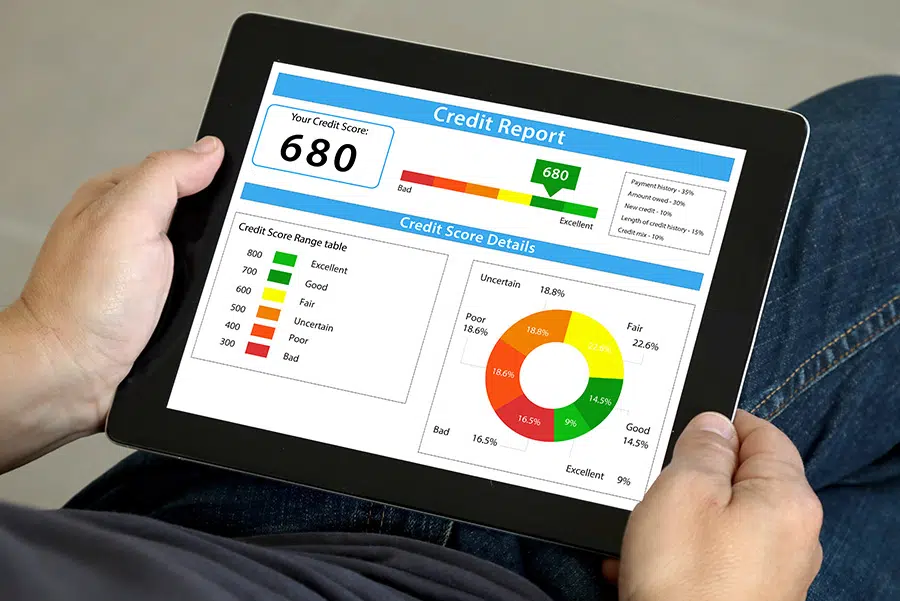In the UK, credit agencies are private companies that gather and store information about individuals’ credit histories and financial behaviour. This information is used by lenders, credit card companies, and other financial institutions to assess the risk of lending money or providing credit to an individual.
The three main credit agencies in the UK are Equifax, Experian, and TransUnion (formerly known as Callcredit). These agencies collect information from various sources, including banks, credit card companies, and utility providers. They then compile this information into credit reports, which provide a snapshot of an individual’s financial history.
Credit reports typically include information such as:
- Personal information, such as name, address, and date of birth
- Credit accounts, including credit cards, loans, and mortgages
- Bank account information, including balance and overdraft facilities
- Payment history, including missed or late payments
- Credit inquiries, which occur when you apply for credit and a lender or other entity requests access to an individual’s credit report
- Public records, such as bankruptcies or court judgments
- Financial Associations, people you are linked to financial, i.e. joint accounts
Lenders and other financial institutions use credit reports to assess an individual’s creditworthiness and determine whether to approve a mortgage, loan or credit application. A high credit score, which is calculated based on the information in a credit report, indicates that an individual is a low-risk borrower and is more likely to be approved for credit with favourable terms.
Individuals can request a copy of their credit report from each of the three credit agencies for free once a year. They can also pay for additional copies or services such as credit monitoring to keep an eye on their credit activity and protect against identity theft.
However, why run lots of individual credit reports? Get your all-encompassing report which includes, Equifax, Experian, TransUnion and Crediva!
In the UK, a credit score is a numerical representation of an individual’s creditworthiness. It is calculated based on information in their credit report, which is maintained by the three main credit agencies in the UK: Equifax, Experian, or TransUnion.
Credit scores in the UK typically range from 0 to 999, with higher scores indicating that an individual is a lower credit risk. Lenders and other financial institutions use credit scores to assess an individual’s creditworthiness and to help determine whether to approve a loan or credit application.
Factors that can affect a credit score in the UK include:
- Payment history: This refers to whether an individual has made payments on time for credit accounts such as credit cards, loans, and mortgages.
- Credit utilisation: This refers to the amount of credit an individual is using compared to their total available credit. Higher credit utilisation can indicate higher risk.
- Credit history length: The length of time an individual has been using credit can affect their score. Generally, a longer credit history is seen as positive.
- Credit mix: This refers to the types of credit an individual has, such as credit cards, loans, and mortgages. Having a mix of credit types can be viewed positively.
- Recent credit applications: Applying for credit can result in a temporary dip in a credit score, as it may be seen as an indicator of financial stress.
It’s important to note that credit scores can vary between the three main credit agencies in the UK. Additionally, lenders and other financial institutions may use different criteria when assessing an individual’s creditworthiness, so having a good credit score is not a guarantee of being approved for credit.
While credit agencies in the UK perform similar functions, there can be differences in the way they operate and the information they collect and report. The three main credit agencies in the UK are Equifax, Experian, and TransUnion, and each of these agencies may use slightly different methods and criteria for collecting and reporting credit information.
One area where credit agencies may differ is in the types of information they collect and report. While all three agencies collect information on credit accounts, payment histories, and public records such as bankruptcies, they may not all report the same information on a particular account. For example, one agency may not report a credit item at all, this is due to creditors only needing to supply credit information to at least two credit agencies.
The advantage of checking your credit file via Checkmyfile is that you’ll get all 3 credit reference agencies records and you’ll see which accounts they have a record of and the details they have.
Additionally, the three credit agencies may use different scoring models to calculate credit scores, which can result in different scores for the same individual. While all three agencies’ scoring models are designed to predict credit risk, they may weigh factors such as payment history, credit utilisation, and credit history length differently.
Despite these differences, the credit agencies in the UK are all regulated by the Financial Conduct Authority (FCA), which sets standards for the way credit agencies collect and report credit information. The FCA also requires credit agencies to provide individuals with free access to their credit reports once a year, and to investigate and correct errors in credit reports when they are identified.
Yes, it can be a good idea to know your credit score in order to understand your creditworthiness and take steps to improve it if necessary. Knowing your credit score can also help you make more informed decisions when applying for credit, such as loans or credit cards.
By checking your credit score regularly, you can monitor for any changes that could affect your ability to obtain credit. If you notice a significant drop in your score, for example, you may want to investigate the cause and take steps to improve your credit standing.
In addition, knowing your credit score can help you identify any errors or inaccuracies in your credit report that could be affecting your score. If you find an error, you can dispute it with the credit agency to have it corrected.
However, it’s important to note that while knowing your credit score can be helpful, it’s not the only factor that lenders consider when deciding whether to extend credit. Lenders may also consider other factors such as your income, employment history, and debt-to-income ratio when assessing your creditworthiness.
Overall, while knowing your credit score is not essential, it can be a useful tool for understanding your credit standing and making informed financial decisions.
Does applying for mortgages and loans affect my credit score?
Yes, applying for mortgages and loans can affect your credit score. When you apply for credit, the lender will typically request a copy of your credit report from one of the three main credit agencies in the UK (Equifax, Experian, or TransUnion). If the lender carries out a ‘soft credit check, that won’t impact your credit score. However, if they carry out a ‘hard credit check’ it can impact your score. Its therefore important to talk to a mortgage adviser before you start applying for a mortgage.
Hard inquiries can cause a temporary dip in your credit score, usually by a few points. This is because multiple hard inquiries in a short period of time can indicate to lenders that you are actively seeking credit, which may be seen as a sign of financial stress.
However, the impact of a hard inquiry on your credit score is typically small and short-lived. The effect typically lasts for a few months and is generally outweighed by the positive impact of making timely payments on your credit accounts.
It’s worth noting that soft inquiries, such as checking your own credit score or when a lender pre-approves you for a loan, do not have a negative impact on your credit score.
Overall, while applying for mortgages and loans can have a temporary impact on your credit score, it’s generally not a major factor in determining your creditworthiness. Other factors such as payment history, credit utilisation, and credit history length are typically more important to lenders when making credit decisions.
Many people avoid checking their credit report because they have been lead to believe it will have an impact on their overall score. In fact, you can check your own credit report as often as you like without it having an impact on your score. Although every check of your report will create a footprint on your file, only searches made by financial lenders will leave a mark on your file that other lenders will see.
Your credit score in the UK is based on a number of factors that reflect your credit history and current credit usage. These factors can include:
- Payment history: This is the most important factor in determining your credit score. Lenders want to see that you have a history of making payments on time and in full.
- Credit utilisation: This refers to the amount of credit you are using compared to your total credit limit. It’s generally recommended to keep your credit utilisation below 30%.
- Length of credit history: This refers to the length of time you have been using credit. A longer credit history is generally seen as positive.
- Types of credit: Having a mix of credit types, such as credit cards, loans, and mortgages, can be viewed positively.
- Recent credit applications: Applying for credit can result in a temporary dip in your credit score, as it may be seen as an indicator of financial stress.
- Public records: Bankruptcies, court judgments, and other negative public records can have a significant negative impact on your credit score.
- Errors on your credit report: Errors or inaccuracies on your credit report, such as incorrect personal information or accounts that do not belong to you, can also affect your credit score.
It’s worth noting that credit agencies in the UK may use slightly different criteria to calculate credit scores, so your score may vary slightly depending on which agency you obtain it from. However, the factors listed above are generally considered to be the most important in determining your credit score.
As responsible mortgage brokers, it’s our job at Clever Mortgages to recommend the right products to you. Having access to your credit file means we can carefully consider your lending options and discuss other options with you if they are more appropriate.
We want to make sure that we place you with the right mortgage product and with the right lender for your situation. We also have options available for people with a poor credit history.
Your credit score shows lenders how trustworthy you have previously been at repaying your debts. This helps lenders make an informed decision about whether or not they should lend to you now. Be aware though of the differences between no credit and bad credit.
Checking your credit score can be daunting, especially if you’ve never checked it before. The advisers at Clever Mortgages will be more than happy to help you better understand your credit score and what type of loans you might be eligible for.
Every lender has their own lending criteria which will usually take into consideration more than just your credit score. Other factors such as borrowing against the property value, length of time in your current job or at your current address.
If you know your credit score is low, then there are things you can do to improve your credit score before applying for a mortgage.

Free credit report check
You can check your multi agency credit report with Checkmyfile. By clicking the link you will be transferred to their website. www.checkmyfile.co.uk.*
* Checkmyfile offer a 30 day free trial before a monthly fee of £14.99 applies. You may cancel at any time without charge by contacting them.



